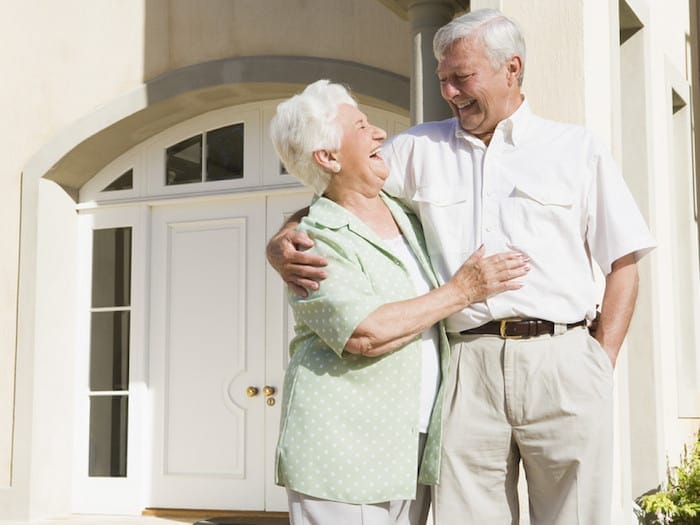Whether it’s through mental or physical deterioration, it’s hard to watch people we care about lose their health and strength as they age. Many people want to bring their elderly relatives into their own homes to prevent them from needing to go into a care home, but the majority of older adults want to retain their independence for as long as possible, not to mention the fact that the costs involved can be extreme. In some cases, it is possible to make adjustments that enable the seniors to live in their own homes while giving relatives peace of mind. Here are some essential factors you should consider when trying to enable an elderly loved one to live independently.
Online food ordering and delivery
Healthy eating is vital at all stages of life, but it becomes even more essential in old age for the maintenance of our physical and mental wellbeing. Shopping for food can be a challenge for some, but a solution to this is online shopping. Depending on how comfortable they are with computers and the internet, they may be able to place their own order, and have it delivered directly to their kitchen. Alternatively, they could tell a relative what they would like so the order can be placed on their behalf, but they still retain their sense of control. There are also some quality meal delivery services to consider.
Adapting the home
It’s highly likely that the house they live in will need to be adapted to minimize any potential safety hazards. It could include installing rails in bathrooms, purchasing over toilet aids, lowering shelves, making flooring even and non-slip, and improving lighting and heating systems. Remotely controlled lighting and heating can also significantly improve the usability and level of control over their energy usage. If they have stairs, they may benefit from a stairlift. It’s now possible to install new curved stairlifts for the home.
Understand their medical needs
If the senior needs to take medication, then it’s important that they do so according to the doctor’s instructions. This will be crucial in extending their good health for as long as possible without needing to be hospitalized or needing live-in care. There are now smart tools such as pill boxes which will automatically remind people when to take certain medicines.
Personal emergency alert systems
If your loved one was to fall, suffer a heart attack, stroke, or injure themselves when living alone, they might not be able to reach a phone or call neighbors for help. A personal emergency response system (PERS) enables them to call for help by pushing a button which they keep on them at all times. They can also include GPS capability so that you can locate them in an emergency, automatic fall detection, and two-way phone communication.
Emotional and mental wellbeing
In addition to caring for an older adult physically, it’s incredibly important that you prioritize their emotional wellbeing. Living alone can have a severe impact on a person’s mental health, and loneliness has been found to increase the likelihood of death among the elderly by as much as 45%. Simply having regular contact with others on a regular basis can help to prevent isolation and depression, so consider ways in which they can continue to socialize and be involved in the community. Perhaps they can get involved in a local fitness class or a crafting group? If they live a long way from family, then even video calling and social media communication can benefit people.
Senior Outlook Today is your go-to source for information, inspiration, and connection as you navigate the later years of life. Our team of experts and writers is dedicated to providing relevant and engaging content for seniors, covering topics such as health and wellness, finances, technology and travel.






